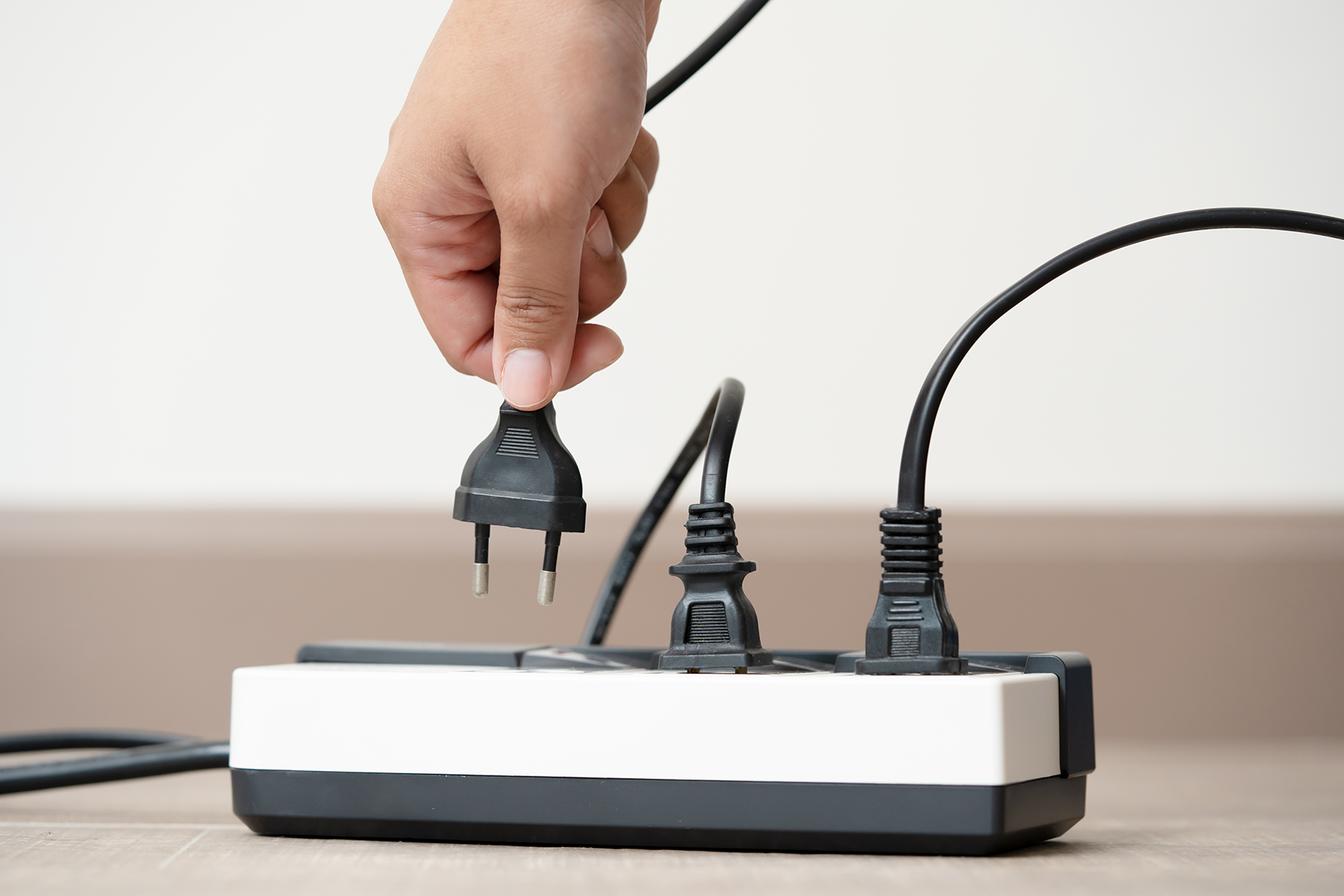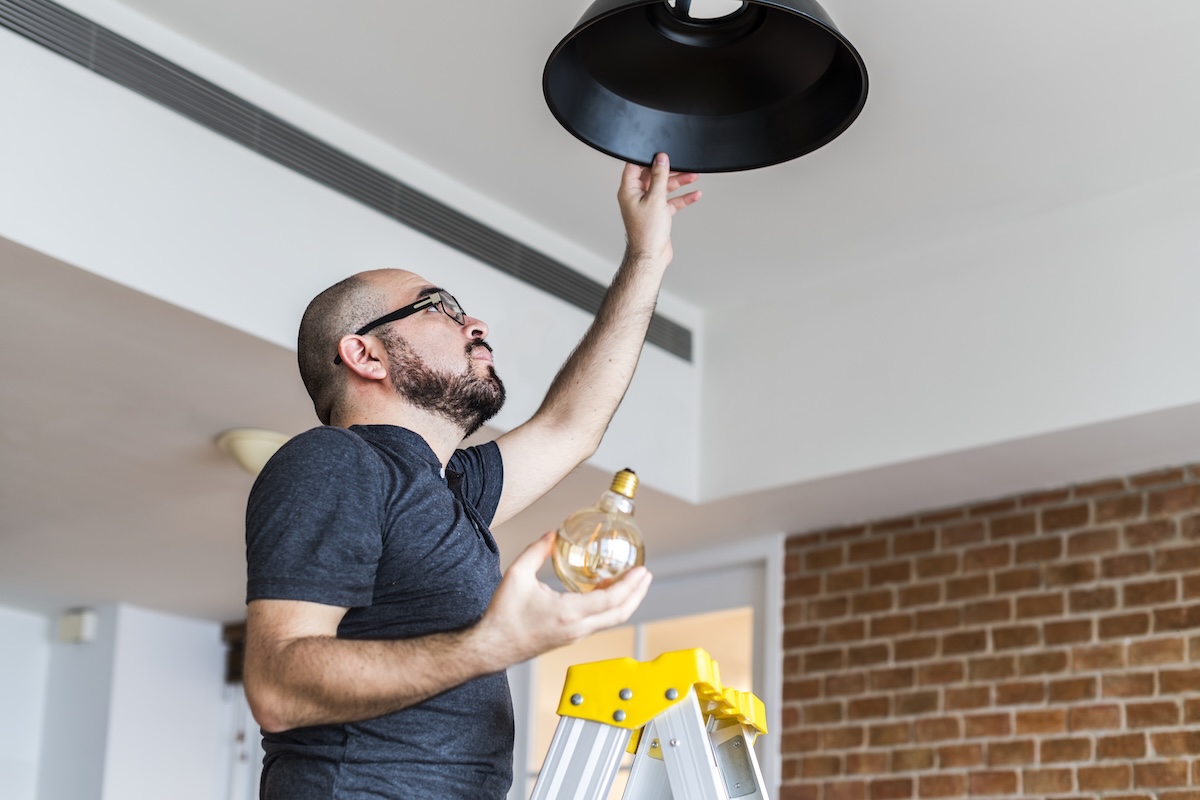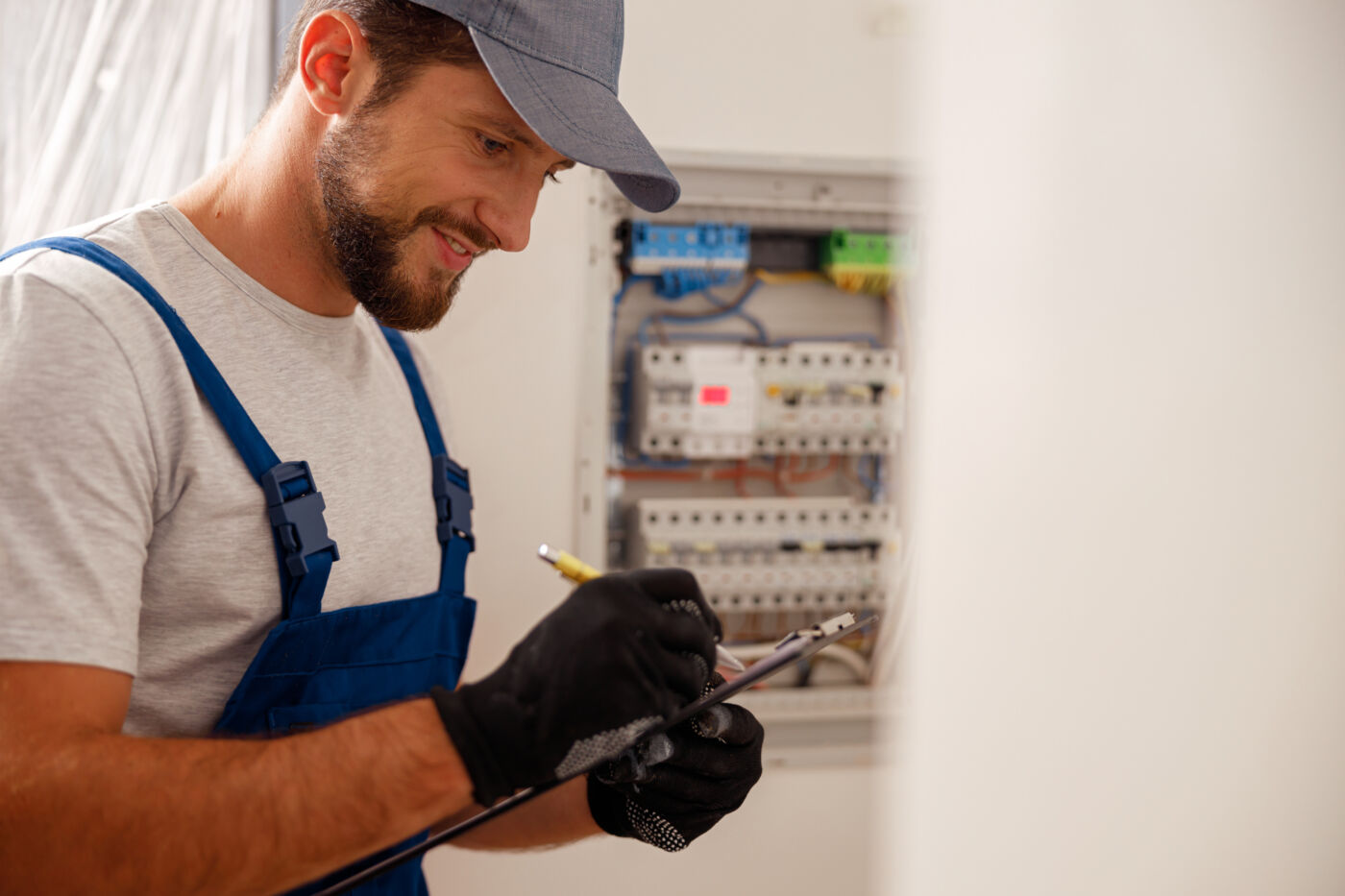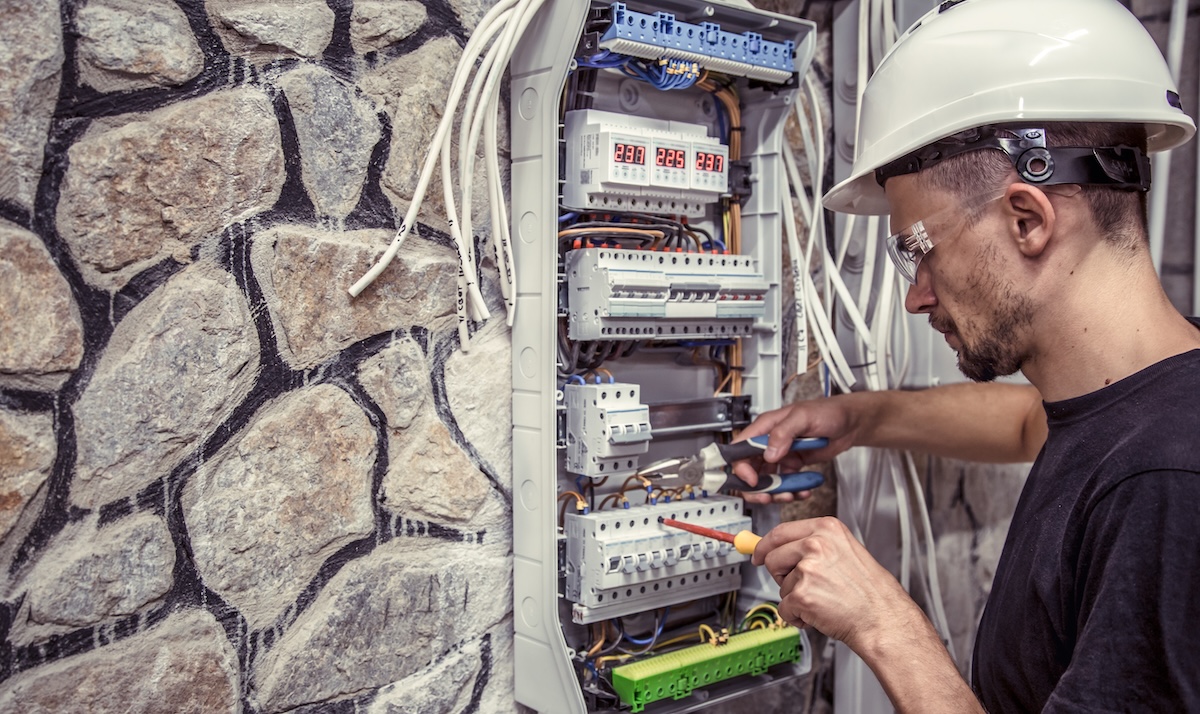Regular electrical maintenance is a crucial aspect of homeownership that often goes overlooked, yet it plays a vital role in ensuring the safety, efficiency, and longevity of your home’s electrical system. Just like any other system in your house, your electrical wiring and components require consistent care and attention to prevent potential hazards. From fire risks to energy inefficiency, neglecting electrical maintenance can lead to serious problems that could jeopardize both your property and your family’s safety.
In this comprehensive guide, we will walk you through the essential aspects of maintaining your home’s electrical system. We’ll start with seasonal maintenance tips that align with the changing demands throughout the year. Next, we’ll help you recognize signs of electrical problems and guide you on when to seek professional help. We’ll also discuss preventive measures you can take to avoid electrical hazards altogether. Finally, we’ll provide an overview of the Home Electrical Safety Checklist by the U.S. Consumer Product Safety Commission (CPSC), a valuable tool to help you keep your home safe and compliant with electrical safety standards.
Seasonal Electrical Maintenance Tips
Seasonal electrical maintenance is essential to ensure your home’s electrical system remains safe and efficient throughout the year. Each season brings its own set of challenges, from increased energy usage in the summer to potential hazards from holiday decorations in the winter. By performing regular checks and addressing seasonal concerns, you can prevent issues before they become serious, reduce the risk of electrical hazards, and ensure your system operates smoothly all year long. In this section, we’ll outline key maintenance tips for each season to help you keep your home’s electrical system in top condition.
Spring Electrical Maintenance Tips
Spring is the perfect time to conduct a thorough inspection of your home’s electrical system as you prepare for the warmer months ahead. Here are essential maintenance tasks to focus on:
- Check and Clean Electrical Panels and Outlets
- Remove dust and debris from electrical panels to prevent overheating.
- Tighten any loose connections inside the panel.
- Inspect outlets for signs of wear, damage, or discoloration that could indicate underlying issues.
- Ensure outlets are properly grounded to avoid electrical shocks.
- Inspect Outdoor Lighting and Power Outlets for Weather-Related Damage
- Examine all outdoor lights and power outlets for damage caused by winter weather.
- Replace any broken or weathered covers to protect outlets from moisture and debris.
- Check for exposed or frayed wires that could pose a safety risk and have them repaired immediately.
- Test all outdoor lighting fixtures to ensure they are functioning correctly and replace bulbs as needed.
- Test GFCI Outlets and Breakers to Ensure Proper Functioning:
- Press the “Test” button on Ground Fault Circuit Interrupter (GFCI) outlets to verify they are working correctly.
- If the GFCI does not trip or reset, replace it immediately to maintain safety.
- Check circuit breakers in the electrical panel, ensuring none are tripped and that all are functioning as expected.
Summer Electrical Maintenance Tips
As the summer heat intensifies, it’s essential to ensure your home’s electrical system can handle the increased demand. Here are important maintenance tasks to focus on during the summer months:
- Ensure Air Conditioning Units and Ceiling Fans Are in Optimal Condition
- Clean or replace air filters in your air conditioning units to improve efficiency and prevent overheating.
- Inspect the wiring and connections of your air conditioning units to ensure they are secure and free from damage.
- Check ceiling fans for proper operation and balance. Tighten any loose screws to prevent wobbling or unusual noise.
- Clean fan blades to remove dust and debris that can strain the motor.
- Check for Overheating Outlets or Appliances, Especially in Areas with Heavy Usage
- Monitor outlets that power high-energy appliances like refrigerators, microwaves, and entertainment systems for signs of overheating.
- Look for discoloration or a burning smell near outlets, which may indicate an electrical issue.
- Avoid overloading outlets by distributing power-hungry devices across multiple circuits.
- Inspect Outdoor Electrical Systems Like Pool or Hot Tub Wiring
- Examine the wiring for pools, hot tubs, and other outdoor electrical systems to ensure they are in good condition.
- Check for any signs of wear, such as frayed wires or corrosion, and repair or replace as needed.
- Ensure that all outdoor electrical connections are properly grounded and protected from moisture to prevent electrical hazards.
Fall Electrical Maintenance Tips
As fall approaches and temperatures start to drop, it’s essential to prepare your home’s electrical system for the colder months ahead. Here are key maintenance tasks to focus on during the fall to ensure your system is ready.
- Inspect and Replace Any Worn or Damaged Cords Before Winter
- Check all power cords, especially those for heaters, extension cords, and holiday decorations, for signs of wear or damage.
- Replace any frayed, cracked, or exposed cords to prevent electrical shocks or fires.
- Ensure that cords are not placed under rugs or furniture, where they can become damaged or pose a tripping hazard.
- Check Heaters and Electrical Blankets for Proper Operation
- Test space heaters and electric blankets to ensure they are functioning correctly before use.
- Inspect the cords and plugs of these devices for any signs of damage, such as fraying or burn marks.
- Ensure that space heaters are placed on stable, non-flammable surfaces and are kept away from flammable materials.
- Ensure All Outdoor Lighting Is Functioning for the Shorter Days
- Inspect outdoor lights, including porch lights, pathway lighting, and security lights, to ensure they are working properly.
- Replace any burned-out bulbs and clean light fixtures to maximize brightness and visibility.
- Consider upgrading to energy-efficient LED bulbs to save on energy costs and improve the longevity of your outdoor lighting during the longer nights.
Winter Electrical Maintenance Tips
Winter brings unique challenges for your home’s electrical system, especially with increased power usage for heating and holiday decorations. To keep your home safe and efficient, focus on the following maintenance tasks:
- Inspect Holiday Lighting for Frayed Wires or Other Hazards
- Before decorating, carefully examine all holiday lights and extension cords for any signs of wear, such as frayed wires or cracked insulation.
- Discard or repair any damaged lights to prevent electrical shocks or fire hazards.
- Ensure outdoor lights are rated for exterior use and are properly weatherproofed to withstand winter conditions.
- Monitor Power Usage to Avoid Overloading Circuits
- With heaters, lights, and holiday decorations running simultaneously, it’s crucial to avoid overloading circuits.
- Distribute high-energy devices across different circuits to prevent tripping breakers or causing potential electrical fires.
- Consider using power strips with built-in surge protection to safeguard your devices from power surges.
- Check for Drafts Near Outlets That Could Lead to Moisture Build-Up
- Inspect outlets, especially those on exterior walls, for any drafts or cold air leaks that could allow moisture to accumulate.
- Seal any gaps around outlets with foam gaskets or outlet covers to keep moisture out and improve energy efficiency.
- Addressing drafts also helps reduce heating costs and keeps your home warmer during the cold months.
Signs of Electrical Problems and When to Call an Electrician
While regular maintenance is key to preventing issues, it’s equally important to recognize the signs of electrical problems that may arise despite your best efforts. Ignoring these warning signs can lead to serious safety risks, including fires or electrical shocks. In this section, we’ll discuss the common indicators of electrical issues that every homeowner should be aware of. Understanding these signs will help you determine when it’s time to call a professional electrician to ensure your home remains safe and your electrical system operates efficiently. Let’s explore the critical signs to watch for and when to seek expert assistance.
Flickering Lights
Flickering lights are a common issue that can indicate underlying electrical problems. Here’s what you need to know:
- Potential Causes
- Loose connections in the wiring or the light fixture itself.
- Overloaded circuits that can’t handle the demand of multiple devices.
- What to do
- If a light flickers when you plug in or turn on an appliance, it could be a sign of an overloaded circuit. Consider reducing the load on that circuit.
- If the flickering persists, or if multiple lights flicker, it’s time to call a professional electrician to inspect and address the issue.
Circuit Breakers Frequently Tripping
Circuit breakers are designed to protect your home’s electrical system, but if they’re tripping frequently, it could indicate a problem. Here’s what to consider:
- Possible Reasons
- Overloaded circuits due to too many devices or appliances drawing power from the same circuit.
- Faulty appliances that are causing surges or drawing excessive power.
- What to do
- If your circuit breaker trips often, try unplugging some devices to reduce the load on that circuit.
- If the issue persists, or if a particular appliance causes the breaker to trip repeatedly, it’s a clear sign that you should consult a professional electrician to diagnose and fix the problem.
Burning Smell or Discolored Outlets
A burning smell or discolored outlets are serious warning signs that something is wrong with your electrical system. Here’s what you need to know:
- Immediate Risks
- Fire hazards caused by overheating wires or faulty connections.
- Short circuits that can lead to electrical shocks or fires.
- What to do
- If you detect a burning smell or notice discoloration around an outlet, stop using it immediately and unplug any connected devices.
- These signs indicate a potentially dangerous situation that requires immediate professional intervention. Contact a licensed electrician right away to inspect and resolve the issue before it escalates into a more severe hazard.
Buzzing Sounds or Sparking from Outlets
Hearing buzzing sounds or seeing sparks from an outlet is a clear sign of a serious electrical issue. Here’s what to consider:
- Potential Dangers
- Wiring issues that could lead to electrical shocks or fires.
- Loose connections within the outlet that can cause sparking and overheating.
- What to do
- If you notice buzzing or sparking from an outlet, stop using it immediately and unplug any connected devices.
- These signs indicate a critical problem that requires urgent attention. Contact a professional electrician as soon as possible to inspect and repair the issue, ensuring your home’s safety and preventing potential hazards.
Preventive Measures to Avoid Electrical Hazards
To ensure your home’s safety, it’s crucial to take proactive steps beyond regular maintenance. In this section, we’ll explore key preventive measures that can help you avoid electrical hazards altogether. By following these guidelines, you can protect your home, reduce risks, and ensure your electrical system remains safe and efficient.
Regular Inspections
- Schedule periodic electrical inspections by a certified electrician to identify and address potential issues before they become serious.
Proper Use of Electrical Outlets
- Avoid overloading outlets by not plugging in too many devices. Use appropriate power strips with surge protection to distribute the load safely.
Childproofing
- In homes with young children, use safety covers on all outlets to prevent accidental shocks or injuries.
Use of Surge Protectors
- Protect your appliances and electronic devices from power surges by using high-quality surge protectors.
Proper Installation of Appliances
- Ensure large appliances are correctly installed and properly grounded to prevent electrical shocks or fires.
Education on Electrical Safety
- Promote electrical safety awareness among family members by teaching them basic practices, such as not using damaged cords and understanding how to safely operate appliances.
Home Electrical Safety Checklist by CPSC
After implementing preventive measures, it’s essential to have a reliable tool to ensure your home remains safe. The U.S. Consumer Product Safety Commission (CPSC) offers a comprehensive Home Electrical Safety Checklist that can help you identify potential hazards.
The CPSC’s Home Electrical Safety Checklist provides a thorough guide to maintaining a safe electrical environment in your home. Here are the key areas it covers:
Outlets and Switches
Ensure all outlets and switches are functioning correctly and are not overloaded with too many devices.
Electrical Cords
Regularly check cords for any signs of damage, such as fraying or cracking. Make sure cords are not placed under rugs or heavy furniture, where they can become damaged or pose a fire risk.
Lighting
Use the correct wattage bulbs in all fixtures to prevent overheating. Replace bulbs that are flickering or showing signs of wear.
Appliances
Inspect appliances for frayed cords and ensure they are used according to the manufacturer’s instructions. Proper use and maintenance of appliances are crucial to avoiding electrical hazards.
The Home Electrical Safety Checklist by the CPSC is an invaluable tool for maintaining a safe home. Here’s how you can make the most of it:
- Download and Regularly Review the Checklist
- Homeowners should download the checklist and use it as a routine part of their home maintenance schedule. Regularly reviewing the checklist helps you stay proactive in identifying and addressing potential electrical hazards.
You can download the Home Electrical Safety Checklist by CPSC here.
- Professional Inspection Services
- While the checklist is a great starting point, having a professional inspection ensures that all potential issues are thoroughly assessed. Lineside Electrical offers comprehensive inspection services based on the checklist to help you maintain a safe and efficient electrical system. Our certified electricians can identify problems that might not be immediately apparent, providing you with peace of mind and a safer home environment.
Regular electrical maintenance is vital for home safety and efficiency. Stay vigilant about potential issues and take preventive measures seriously. For peace of mind, consult a professional electrician for any concerns. Lineside Electrical offers a free consultation or discount on home inspections—download the CPSC Home Electrical Safety Checklist here and use it regularly.





